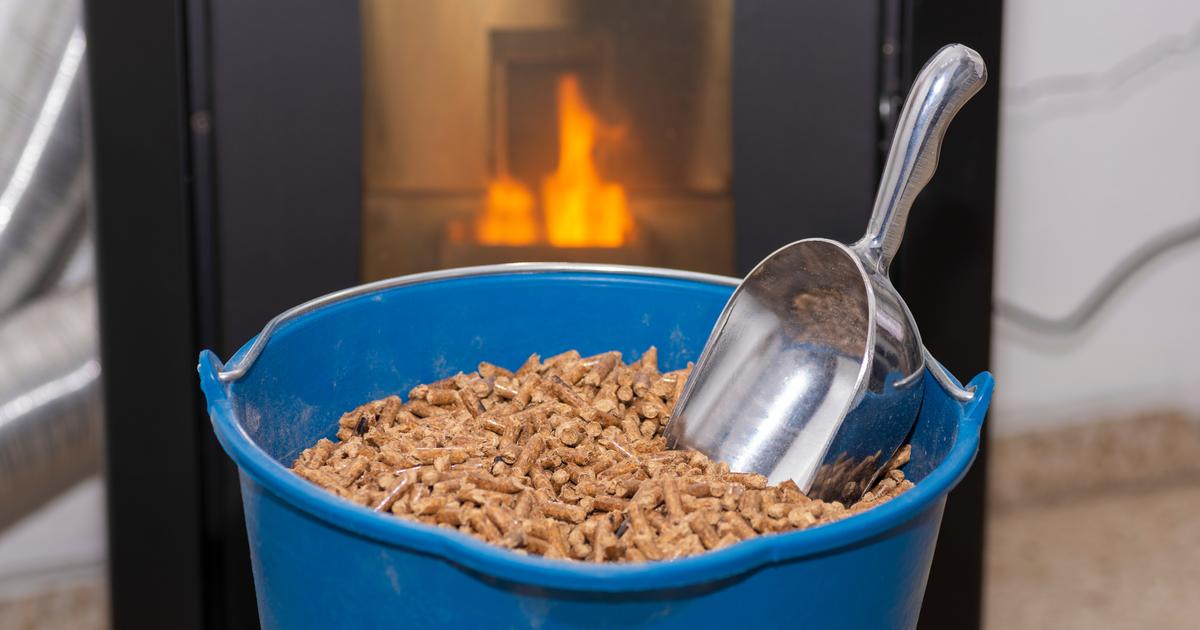In Germany, wood-burning stoves and other wood-fired heating systems emit as much particulate matter as road traffic. For this reason, the Federal Environment Agency rejects their funding.
Dessau-Roßlau - Particulate matter pollution in Germany is a topic of discussion, especially on New Year's Eve. According to the Federal Environment Agency (UBA), fireworks ensure that particulate matter pollution on New Year's Day is among the highest in the whole year. According to a spokesman for the office, however, the fireworks as a whole are not necessarily a major problem for the environment. In the hours after midnight, a lot of particulate matter can be distributed in the air, later the pollution decreases again. How quickly this happens depends on the weather. Even on the last New Year's Day, there was no extreme particulate matter pollution on average.
Federal Environment Agency: Particulate matter pollution from wood-fired heating systems as high as from traffic
Another issue is the massive particulate matter pollution caused by wood-fired heating systems. "Wood-fired heating systems now account for more than 20 percent of total particulate matter emissions. That's about the order of magnitude of emissions from road traffic," warns UBA President Dirk Messner in an interview with the German Press Agency. Above all, single-room furnaces such as fireplaces and stoves, of which there are over eleven million in Germany, represent a major source of particulate matter. For this reason, UBA rejects the promotion of wood-fired heating systems and calls for higher standards in terms of air pollution control.
According to the Federal Environment Agency, wood heating systems © account for more than 20 percent of total particulate matter emissions Jan Woitas/dpa
The problem has been exacerbated by the energy crisis. This is because increased prices for oil and gas have significantly increased the demand for wood-burning stoves in Germany. However, according to the new Building Energy Act passed by the Federal Cabinet, heating with biomass such as wood should only remain an option in existing buildings where other solutions are not feasible or sensible, for example because of the protection of historical monuments.
Federal Environment Agency makes front against wood-burning stoves: forest owners are alarmed
Forest owners are alarmed. "By discriminating against renewable wood energy, the federal government is endangering sustainable forest management in Germany," said Irene Seling, chief executive of the Association of Forest Owners, on her website. For forest owners, the marketing of residual wood, which could not be used to a higher standard, as firewood, is an important source of income to finance climate-resilient forest conversion.
UBA President Messner understands this. "We also understand that forest owners have an economic interest in this. This residual wood can then go into wood-fired heating systems, which are operated as central heating systems with pellets," he says. This makes a big difference to burning wood in fireplaces. The emissions from chimneys were significantly higher than from pellet heating systems, which were controlled automatically and had dust separators that removed the particulate matter from the exhaust gases. But from the perspective of climate protection, it is always better to process wood than to burn it.
Federal Environment Agency and heating with wood: Burning is never complete
UBA is fundamentally critical of the burning of wood. On its website, the office emphasizes that substances that are harmful to the climate and health can be produced in the process. This is because the burning of wood, especially logs in small wood-burning systems such as wood-burning stoves or tiled stoves without automatic control, never runs completely and in addition to air pollutants that are hazardous to health, climate-damaging methane, nitrous oxide and soot are also produced.
0
Also Read
Finally: Pension insurance brings free offer - for all insured persons in one portal
READ
Fashion retailer from southern Germany insolvent - all branches are closed
READ
China is changing economic strategy in Europe
READ
Driver's license from 70: Union wants to stop EU plans – not compatible with the Basic Law?
READ
Heating oil price at an all-time low: Expert reveals whether you should fill your oil tanks now or wait and see
READ
Fancy a voyage of discovery?
My Area
In order to heat with as few emissions as possible and with the highest possible efficiency, UBA recommends the use of well-processed and dried wood from sustainable regional forestry as well as modern, efficient and low-emission fireplaces.
New Federal Immission Control Act: Stoves must comply with limit values
However, for some stove owners, the issue could take care of itself. This is because the deadlines of the so-called Federal Immission Control Act (BImSchG) will take effect from 2025. According to this, wood-burning stoves and wood-burning stoves may emit a maximum of 0.15 grams of dust and four grams of carbon monoxide per cubic meter of exhaust gas. If these limits are not met, the furnace must be shut down or retrofitted by December 31, 2024.









